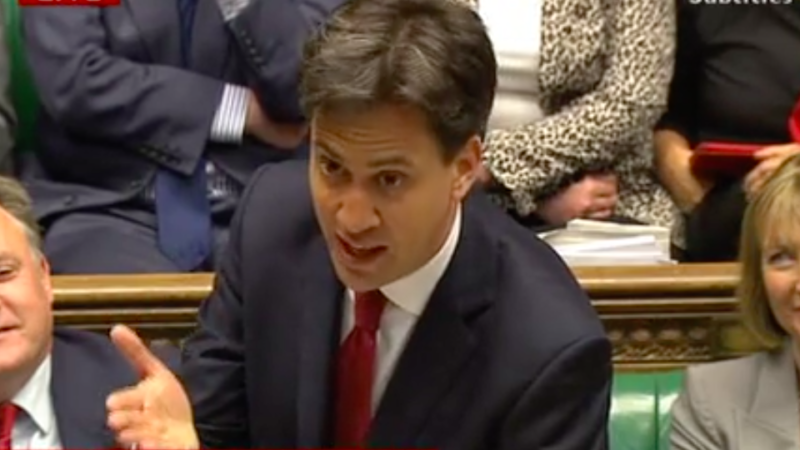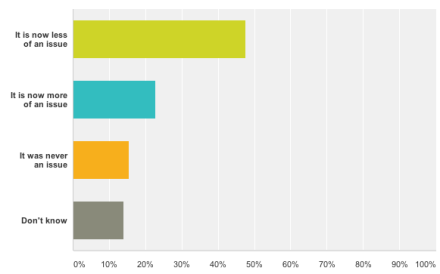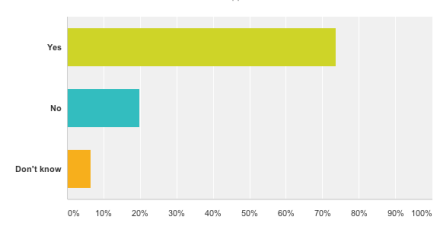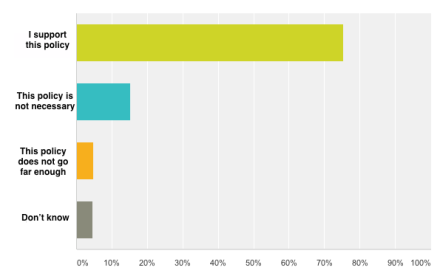

Ed Miliband’s image is now less of an issue as a direct result of his speech last week, according to LabourList readers. Miliband gave a speech last Friday, in which he directly addressed concerns that he was not as photogenic as David Cameron. Launching “The Choice”, Labour’s summer campaign slogan, he set out the difference between himself and the Tory leader:
“If you want the politician from central casting, it’s just not me, it’s the other guy.
And if you want a politician who thinks that a good photo is the most important thing, then don’t vote for me. Because I don’t.”
This understandably caused a lot of chatter about Miliband’s appearance. His was the face that launched a thousand opinion pieces. But a week on, did dealing with the issue head-on work? Or has he made it an issue for himself?

48% of LabourList readers think that the speech worked: by appreciating the issue existed, but saying that he was more concerned about other matters, he successfully neutralised it as a problem. 23% felt that the speech had backfired – allowing the media to talk about a triviality at length during a slow news week (as far as Westminster politics is concerned) during the Summer recess. The fact that it has been discussed at length so much in the past week means that it is now more of an issue.
15% were more sceptical still, giving the electorate more credit than that. They do not believe that Ed Miliband’s supposed “image problem” was ever an issue. Meanwhile, 14% said they didn’t know – and they might be right. Miliband’s speech was a risky move, and we may not be able to see it’s full effect until much later on.
On the Andrew Marr Show on Sunday, Miliband was more focussed on talking about how politics can be opened up to make more people feel part of the process. He spoke about an idea he had to set up a “Public Question Time”, where the Prime Minister would hold regular events where they could be questioned by ordinary members of the public.
Nearly three-quarters thought this was a good idea for engaging more people in politics and making the role of PM more publicly accountable, while one in five were sceptical of its merits. Perhaps some of this scepticism can be attributed to not yet knowing how the idea will work in practice: Miliband talks of wanting to see the public come into the Palace of Westminster on Wednesdays to ask the PM questions, yet it is not clear how the members of public will be chosen, what time of day it will take place, and why it has to take place in Parliament. For someone working a Monday-Friday 9-5 job in Barrow-in-Furness, the chance to trek to London on a Wednesday may not feel particularly like inclusive politics.

On Monday, Yvette Cooper made a speech on law and order, in which she announced that Labour would bring forward a bill which would make violence against women a specific offence, following the Government’s decision to downgrade action on domestic violence, despite figures showing that on average two women a week die at the hands of their partner.

The idea proved popular with 75% supporting it – and a further 5% feeling that it should be a stepping stone to further legislation. 15% did not think the policy was necessary, while 5% did not know.
Thankyou to the 643 who took part in our survey this week.




More from LabourList
‘The hope that kills you’: Reflections from the final day in Gorton and Denton
MPs, union leaders and organisations react to ‘bruising’ Gorton and Denton result
A gory night for Labour